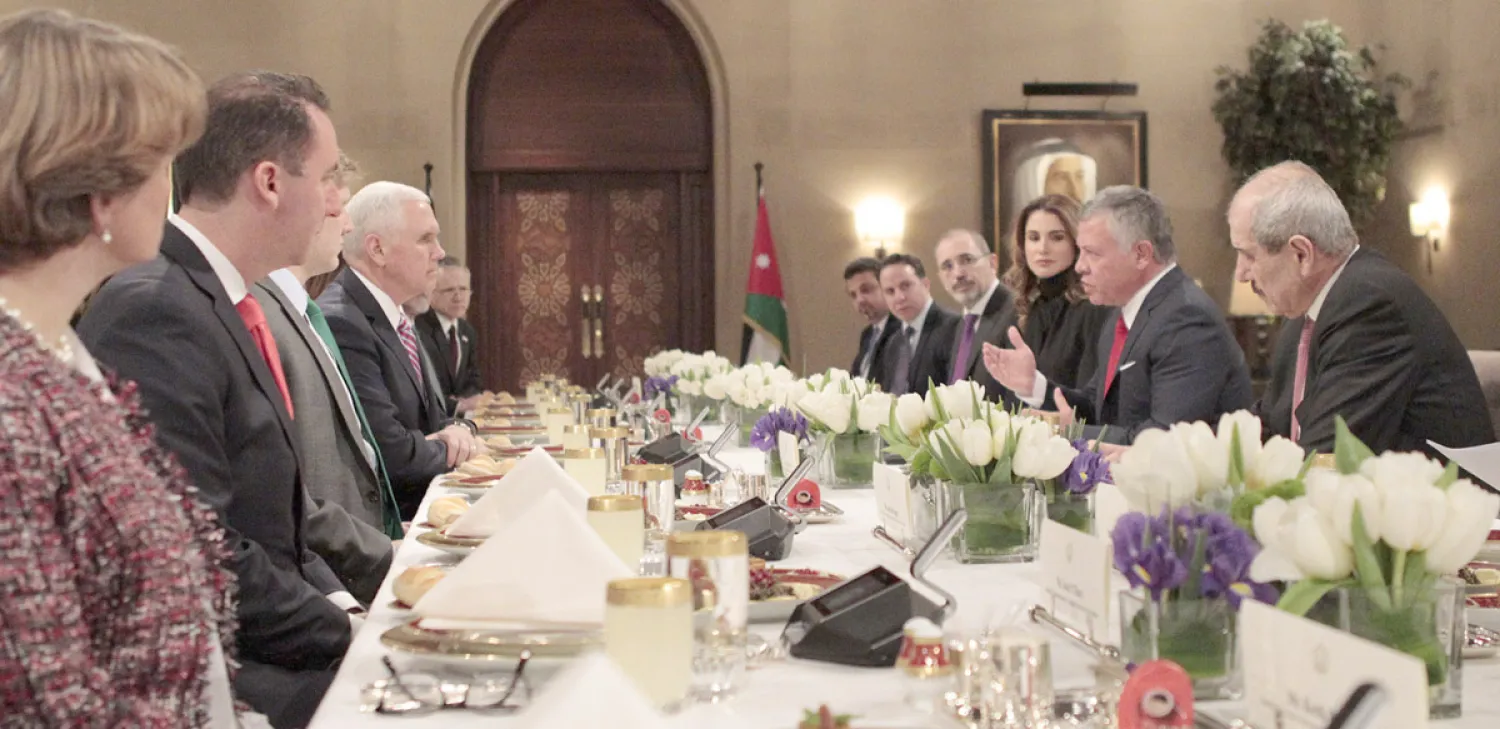The United States remains committed to a two-state solution, Vice President Mike Pence said during a meeting with Jordanian King Abdullah II in Amman on Sunday.
However, the vice president defended US President Donald Trump’s decision to recognize Jerusalem as the capital of Israel, describing his move as “historic.”
Pence added that the president also made clear in that decision, that the United States is committed to continue to respect Jordan’s role as the Custodian of holy site and that Washington takes no position on boundaries and final status. “Those are subject to negotiation.”
“And, as I’ve made clear to you and the President made clear to the world, the United States of America remains committed, if the parties agree, to a two-state solution. We are committed to restarting the peace process," the Vice President said.
For his part, the Jordanian King reminded the US official about his “deep concerns,” voiced during his visit to Washington last year, “from any US decision regarding Jerusalem, that does not come as a result of a comprehensive settlement to the Palestinian-Israeli conflict.”
The King asserted that Jerusalem is key to Muslims and Christians as it is to Jews.
On Sunday, the Israeli government took advantage from the Palestinian boycott to Pence’s visit by welcoming the vice president as a “close friend.”
Pence will become the first official in the position of VP allowed to deliver a speech in front of the Knesset on Monday.
The United List of Arab parties in the Israeli government decided to withdraw its 13 deputies from the Knesset when Pence starts his speech.
Arab Israelis are descendants of Palestinians who stayed on when Israel was created in 1948.
Pence had kicked off his Middle East tour on Saturday by first visiting Egypt where he met with President Abdel Fatah el-Sisi.
The visit is the first of a US official to the region since Trump’s decision to recognize Jerusalem as Israel's capital last month, which was met with Arab and worldwide rejections.









